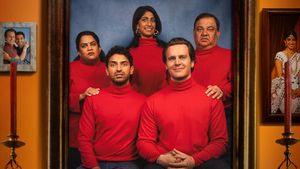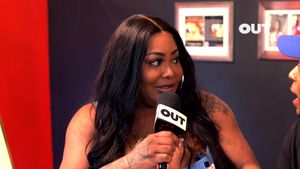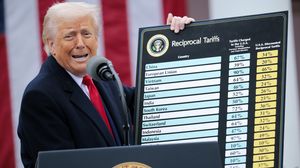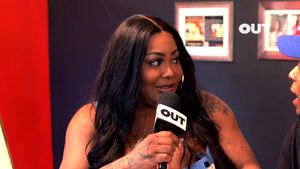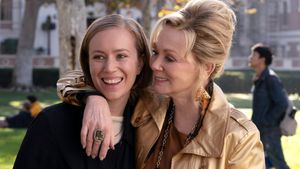During the height of the #MeToo movement, someone I knew at one of my previous employers was accused of inappropriate behavior. It was more about the way he verbally abused women versus sexually harassing them. I had heard the rumors about him for a while.
It took the company forever to take action, but once it did, I had to go into action as the PR guy and handle all the media questions surrounding his dismissal. It was not an easy task, for several reasons. First, I had to defend the company's slow response, which was a real challenge since someone leaked to the media that it took so long to take action. Second, I had to stick to the statement we took hours upon hours to issue that required an infusion of legal dos and don'ts.
Finally, I was shocked when the guy in question reached out to me and asked me, as a friend and former coworker, to help him manage all of the negative press, and advise him about what he should say and how he should address the damage moving forward in his career. As much as I am a helpful guy, I declined, since this seemed to me to be a conflict of interest, and I wasn't in any mood to help anyone who was far less a victim and far more a perpetrator. "I'm not the right person to help you," I said emphatically.
I bring this up as a cautionary tale in the wake of Alphonso David being fired as president of the Human Rights Campaign after he was reported to have helped former New York Gov. Andrew Cuomo respond to sexual harassment accusations. In particular, it seems that David was called in peripherally to help smear the reputation of one of the governor's accusers, Lindsey Boylan, according to the New York State attorney general's investigation into Cuomo's behavior. David was the in-house counsel for Cuomo before he was hired as the head of one of the largest human rights organizations in the world.
Two other equality leaders, similarly called on by Cuomo to help swat away the accusations by the women, and who got caught up in the imbroglio and were included in the attorney general's investigation, resigned. Attorney Roberta Kaplan, who argued the case at the Supreme Court that brought down the Defense of Marriage Act in 2013, resigned as board cochair at Time's Up, which assists survivors of sexual harassment. And Tina Tchen, Time's Up president and CEO, also resigned.
The HRC hired a law firm to investigate David's role in Cuomo's response. The firm apparently presented its findings verbally, and its disclosures were enough to prompt the board to fire David. David's conduct had done "material damage" to HRC's reputation, the chairs wrote in announcing his firing, that what he did conflicted with its mission of fighting "racist, bigoted patriarchal systems."
Now, this is where it gets tricky. At first, the board asked David to resign, and he took to the social spheres to defend himself, cast doubt on the HRC's investigation, and claimed that the HRC found he had done no wrong. That's when the HRC went full throttle.
It appears David took a page from former U.S. Attorney General William Barr, who before the findings of the Robert Mueller investigation became public bulldozed his way to a set of microphones to bark that Mueller's report had exonerated Donald Trump of any misconduct. A federal judge last year said Barr's actions were "misleading public statements" and showed a "lack of candor."
Did David jump the gun like Barr, and more to the point, did David jump too fast to help his old friend and boss Andrew Cuomo?
The board cochairs said they were "very surprised" and "disappointed" by the inaccuracies of David's portrayal of events. David claimed he was told the board's investigation was not complete and that the whole situation (i.e. his removal) was "preordained" from the start.
However, the one thing that can't be debated is the fact that he did lend Cuomo a hand, despite the fact that this assistance had red flags and the appearance of impropriety all over it. I'm not defending David, but from all that has been said about Cuomo, it is virtually impossible to say no to him. Still, that's what should have happened here, despite what the repercussions to David would have been. (David has said he was contacted by Cuomo's staff, not the governor himself.)
It's one thing to help a friend, another thing to help a former boss, but David's actions, according to the HRC, went against the organization's ethos of "fighting on behalf of all victims of sexual assault." David is a very smart guy, and he's a lawyer, so he has the capacity to spin this in a way that tries to deflect away from the main issue. The bottom line is that he did help the governor in some way, so he can't help victims at the same time he's helping the victimizer.
Kaplan and Tchen came to know that what they did was wrong, so they did the right thing and stepped down, rather than inflict any more perceptual damage to their organizations. Together with David, they were most likely blinded by the fact that Cuomo, for most of his career, has been a champion for women's rights and LGBTQ+ rights. Having worked closely with him, they all perhaps thought at the time that they were helping not a friend or former boss but an ally; however, the evidence against Cuomo, per the state AG's report, was simply overwhelming. (David has said he did not know the extent of the accusations against Cuomo at the time he gave the assistance, and that one of his actions, handing over a memo of a meeting with one of the accusers, dealing with an unrelated matter, was something he was legally obligated to do.)
It's not easy to say no to someone who you perceive to be a friend, both to you or your cause. But common sense must come into play before you jump on board for something that appears to be antithetical to the cause of the organization you lead. As a leader, you must be pristine, without any conflicts of interest, without any impartiality because of a previous relationship -- or even an existing one. The red lights should have flashed wildly when the words "victim" and "sexually harassed" were repeated dozens of times, all by different women.
Just picking up the phone or answering an email and offering to help in some way crosses a line in this situation. As a leader, when the story becomes about you, and not in a good way, and not about the organization, it's usually time to bow out gracefully. That's what Kaplan and Tchen did. They realized it was the right thing to do.
What David, Kaplan, and Tchen should have said emphatically was "I'm not the right person to help you." In the end, it may have cost them a friendship or a professional relationship, but not their jobs.
John Casey is editor at large for The Advocate.







